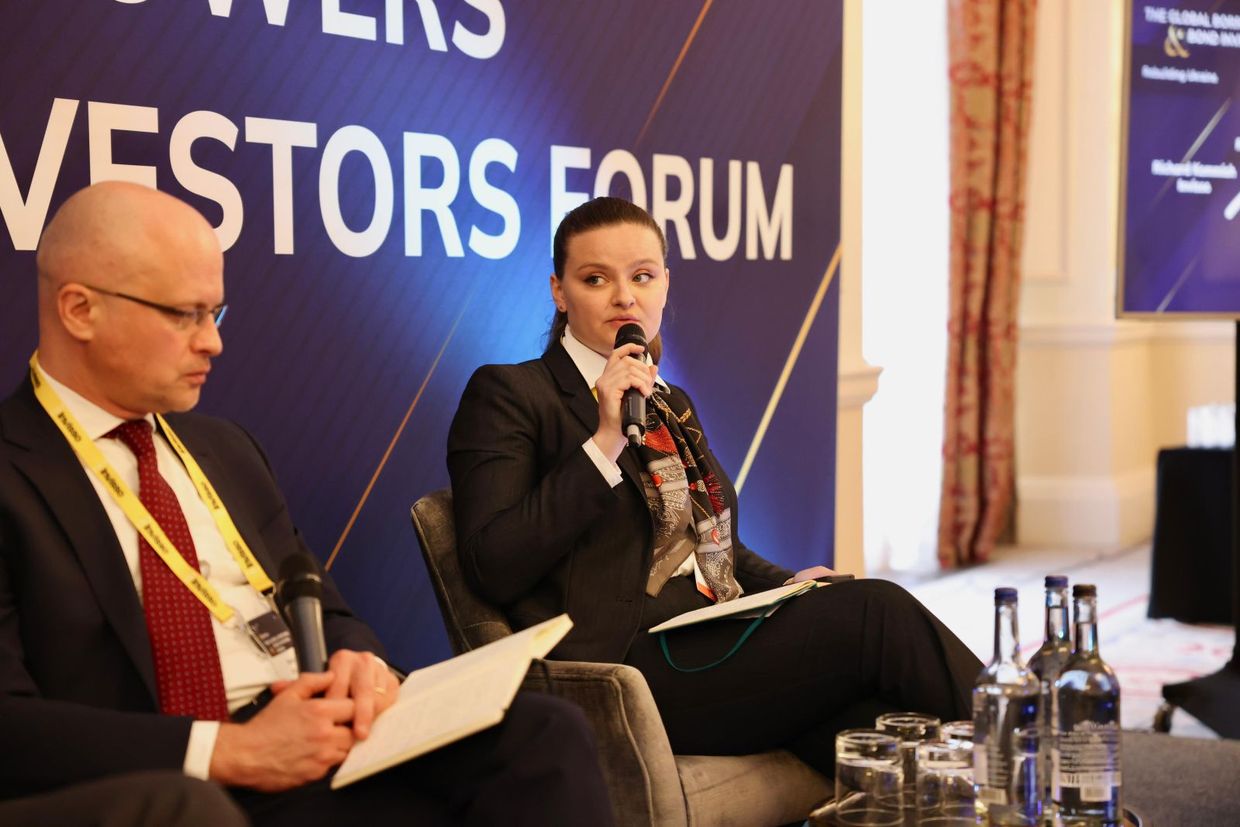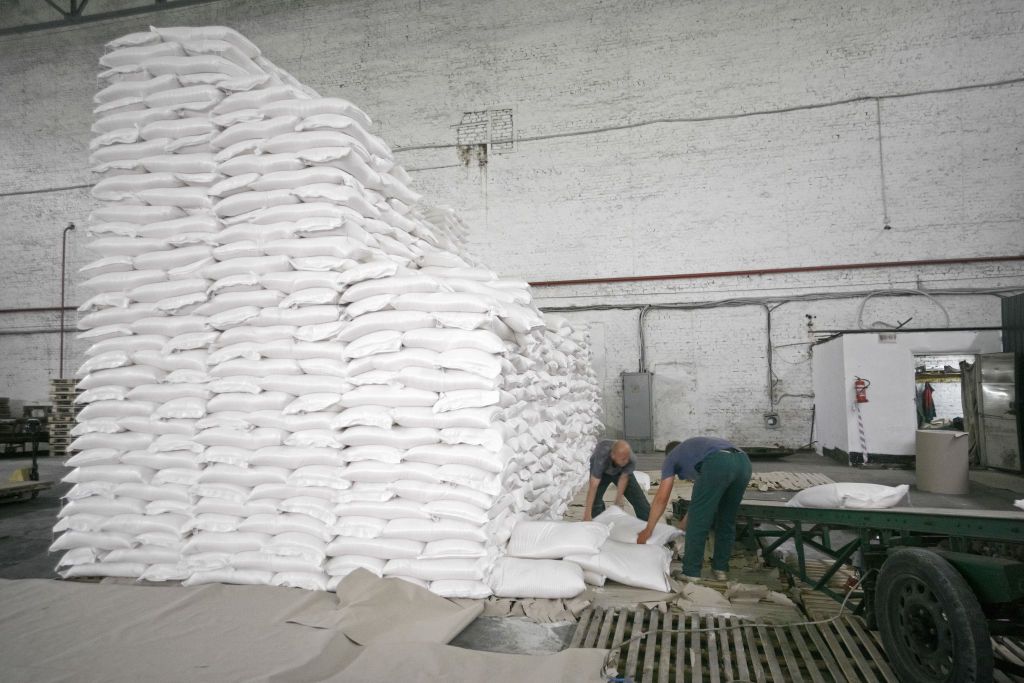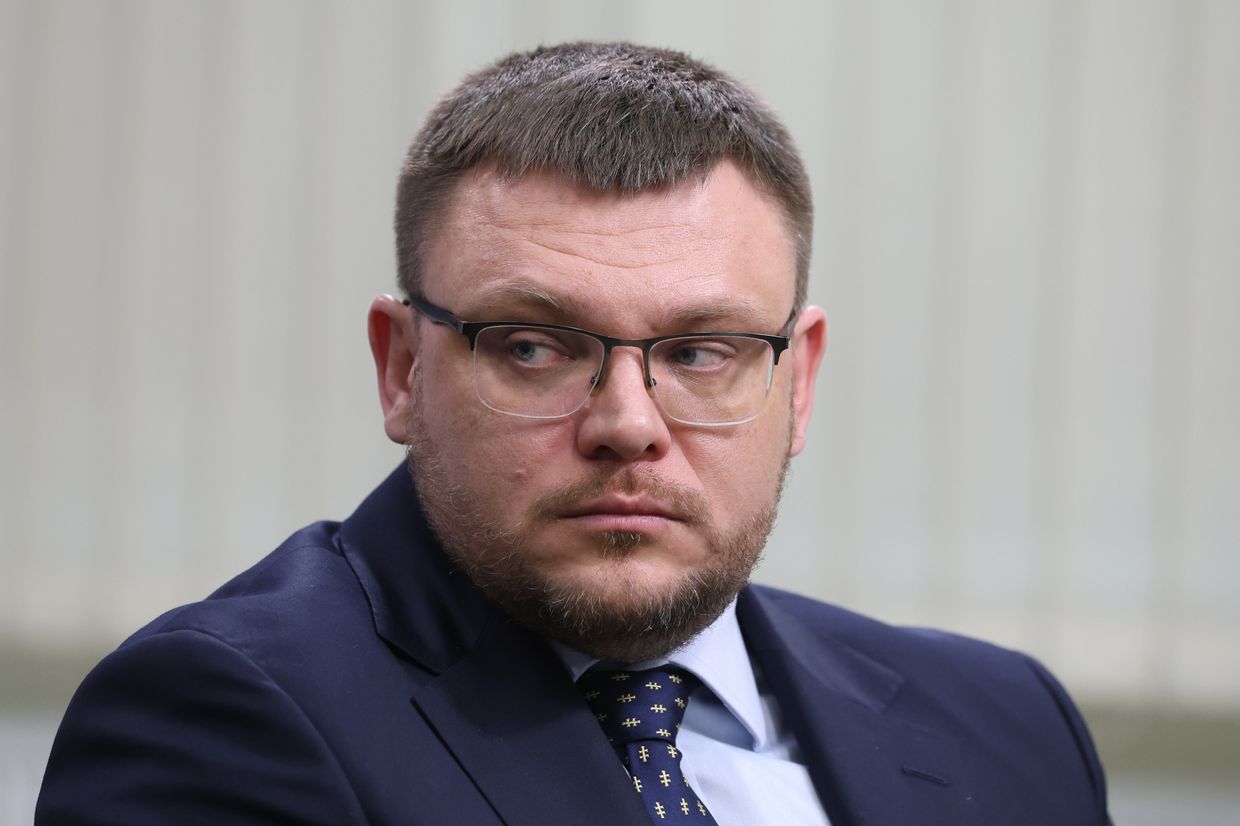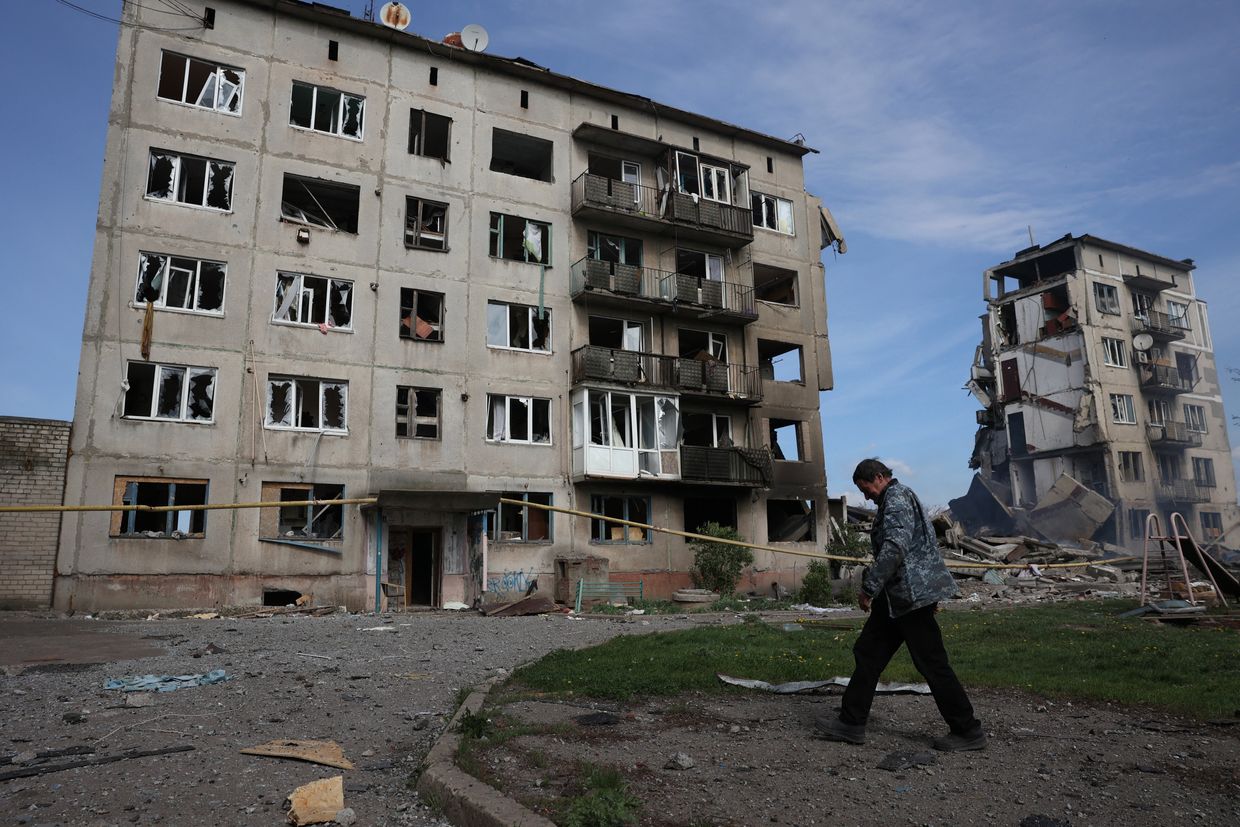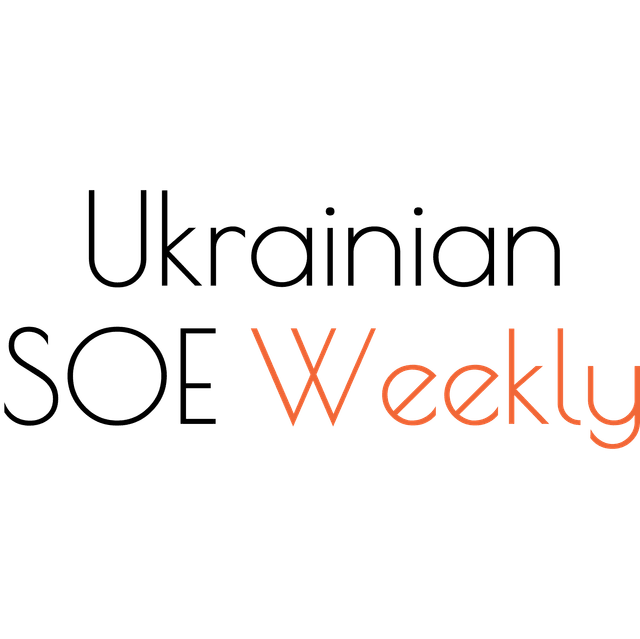Ukraine state-owned enterprises weekly — Issue 136

Editor’s Note: This is issue 136 of Ukrainian State-Owned Enterprises Weekly, covering events from June 09-16, 2024. The Kyiv Independent is reposting it with permission.
Corporate governance of SOEs
HACC extends pre-trial restrictions for Kobolyev. On June 11, the High Anti-Corruption Court (HACC) granted the SpecialiZed Anti-Corruption Prosecutor’s Office (SAPO) motion to extend pre-trial restrictions for former Naftogaz CEO Andriy Kobolyev. Before Aug. 11, he must:
- appear at every request of the prosecutor and the court;
- report any change of place of residence;
- refrain from communicating with the persons specified in the court ruling; and
- hand over all passports to the State Migration Service.
As we reported in Issue 71, on Jan. 19, 2023, the National Anti-Corruption Bureau of Ukraine (NABU) and SAPO charged Kobolyev with illegally awarding himself Hr 229 million, part of a bonus given to the Naftogaz team for their victory against Russia’s Gazprom in Stockholm’s court of arbitration in 2018. Hr 229 million was $8.8 million, or 7.6 million euros, at the time when bonuses were awarded.
On Aug. 9, 2023, HACC decided to extend the Hr 229 million bail ($6.1 million or 5.6 million euros at that time) for another two months and left Kobolyev’s procedural obligations, including pre-trial restrictions, unchanged. See SOE Weekly’s Issue 99 for details.
On Sept. 25, 2023, HACC removed the electronic ankle monitoring device from Kobolyev and halved his bail to the amount already paid, Hr 107 million ($2.9 million or 2.8 million euros). See Issue 104 for more detail.
As we reported in Issue 113, on Nov. 29, 2023, SAPO said that it filed abuse of office charges against Kobolyev. On Nov. 30, 2023, at the first preparatory hearing on Kobolyev’s charges, HACC granted the SAPO prosecutor’s motion and extended his procedural duties until Jan. 30, 2024.
On Dec. 14, 2023, following the results of the preparatory meeting, the panel of judges at the HACC denied the defense’s request to return the indictment, scheduled a hearing on the merits, and commenced a hearing in the Kobolyev case. There have been at least eight court hearings since then. See Case No. 991/10459/23.
Note that Oleksiy Nosov, the lead attorney and communicator in the Kobolyev case on the part of the defense, was detained for a suspected attempt to bribe NABU and SAPO in an unrelated case, after which HACC set bail for him. The case involves an alleged theft of Hr 716 million (16.4 million euros) worth of electricity from Ukrenergo by a group led by Mykhailo Kiperman, a businessman reportedly associated with the Privat group.
For an extended background on the Kobolyev case, see SOE Weekly’s Issues 71, 72, 73, 77, 78, 79, 83, 84, 88, 91, 99, 104, and 113.
For a detailed analysis of this case from a corporate governance perspective, see series of columns by SOE Weekly team members Andriy Boytsun, Oleksandr Lysenko, and Dmytro Yablonovskyi: Are Kobolyev’s bonuses a threat to corporate governance reform? Part 1, Part 2, Part 3, Part 4, and Part 5.
Energy sector
Ukrnafta and Ukrtransnafta pay 2023 dividends to Naftogaz. On June 11, Ukrnafta reported that it paid Hr 3.5 billion ($86.5 million) in dividends to Naftogaz, fully covering its dividend obligations for the previous year.
The 2023 financial statements of Naftogaz or Ukrnafta were not publicly available at the time of writing.
As we reported in Issue 131, Naftogaz Group said that it made Hr 23.1 billion ($571 million) in consolidated net profit in 2023, a significant rebound from its Hr 79.1 billion ($1.9 billion) loss in 2022. With a 95% payout ratio, Naftogaz’s dividends come out to Hr 21.9 billion ($541 million). Ukrnafta accounts for 16% of this amount.
In total, Ukrnafta has paid about Hr 8 billion ($197 million) in 2023 dividends to its shareholders, the Defense Ministry and Naftogaz, the company’s CEO Sergii Koretskyi said in a statement.
Naftogaz owns 50% plus one share of Ukrnafta, while the Defense Ministry owns 50% minus one share.
Note that Ukrnafta used to pay its dividends on Naftogaz’s share directly to the state treasury, which was out of step with the OECD Guidelines on Corporate Governance of SOEs. This was rectified by the SOE corporate governance law adopted in February 2024 – Law No. 3587-IX, previously known as Draft Law No. 5593-d. The law’s whose major contribution was to align the SOE corporate governance framework with the OECD Guidelines, including the rule that SOEs and their subsidiaries pay dividends on a consolidated basis. See SOE Weekly’s Issues 120 and 122 for more detail.
However, as soon as in May, parliament adopted Draft Law No. 10168-2, which reversed the dividend provisions of the new SOE governance law to have Ukrnafta pay all dividends directly to the state budget. See our Issue 132 for detail.
Although voted in the second (i.e., final) reading, Draft Law No. 10168-2 has not yet been either signed or vetoed by the President, meaning that it is not (yet) effective, and the dividend provisions of Law No. 3587-IX remain in force. In other words, the fact that Ukrnafta paid dividends to Naftogaz on its share in the company this year is a direct effect of Law No. 3587-IX.
Pursuant to the Cabinet’s decision, Ukrnafta must pay 30% of its net profit for 2023 as dividends and use another 50% of the profit for capital investments approved by the Cabinet.
As we reported one and half years ago, the shares of Ukrnafta, Ukrtatnafta, Motor Sich, AvtoKrAZ, and Zaporizhzhiatransformator (ZTR) were seized “for the needs of the state” and transferred to the Defense Ministry. See Issue 68 for detail.
On June 12, another Naftogaz subsidiary, Ukrtransnafta, announced it was paying Hr 5.3 billion ($131 million) in dividends for 2023, more than it ever paid in its history. This was made possible by the company’s 40% spike in net profit to Hr 5.6 billion ($138 million).
With this dividend payment, Ukrtransnafta’s contribution to Naftogaz’s consolidated dividends for the year will be 24%. Ukrtransnafta’s audited financial statements for 2022 or 2023 were not available at the time of writing. No further information was made available on the drivers of Ukrtransnafta’s profitability. The subsidiary’s core business is oil transit through the Ukrainian pipeline network, including transporting Russian oil to Hungary and Slovakia via the Druzhba pipeline.
Earlier, Naftogaz said that the profitability of its business lines was driven by significantly improved financial results of the Group’s subsidiaries. The company did not provide any details. (See SOE Weekly’s Issue 131.)
Ukrenergo receives a 30-million-euro loan and 15-million-euro grant from Germany to improve the reliability of Ukraine’s energy infrastructure. The agreements were signed between Ukrenergo and Germany’s KfW development bank on June 10-11.
This is an investment into the resilience of Ukraine’s power grid and the stable operation of the Ukrenergo trunk high-voltage network, the company said.
Ukrenergo also received 40 high-voltage bushings from the United Nations Development Program (UNDP) in Ukraine, the Republic of Korea, and Iceland to help to restore power facilities damaged by the Russia. The bushings are a vital component in power transmission and distribution systems. If the bushings are damaged, the power cannot reach consumers, even if the transformer is in good condition, the company explained.
Since March 22, Ukraine has faced six massive missile and drone strikes on energy facilities. See our Issues 124, 125, 127, 129, 131, and 134 for more detail.
After every Russian mass missile attack on Ukraine’s vital infrastructure, emergency outages take place, lasting for days due to the ongoing repair works. During such outages, people in Ukraine are often left without electricity, heating, water supply, or access to mobile phone networks.
Defense
UDI and Rheinmetall opened the first joint armored vehicle repair and production workshop in Ukraine on June 10. The workshop will repair and manufacture German military equipment in use by Ukrainian forces. Ukrainian specialists do the work while Rheinmetall representatives supervise.
In Issue 88, we reported that Rheinmetall signed an agreement with Ukrainian Defense Industry (UDI) in May 2023 to set up a joint venture to repair tanks in Ukraine.
According to the agreement, the German side would hold 51% of the shares and have the management rights. The cooperation will focus on the maintenance and repair of armored vehicles in Ukraine, while preparations will be made for the construction of tanks.
As we wrote in Issue 108, the German-Ukrainian LLC “Rheinmetall UDI” (Rheinmetall Ukrainian Defense Industry LLC) was registered on Oct. 18, 2023.
Rheinmetall AG, headquartered in Dusseldorf, is one of the largest manufacturers of military equipment, weapons, and vehicle components in Europe.
The group consists of five divisions: Vehicle Systems; Weapons and Ammunition; Electronic Solutions; Sensors and Actuators; and Materials and Trade. With some 28,000 employees working in 132 locations worldwide, Rheinmetall’s sales were 6.4 billion euros in 2022.
The group’s sales were distributed geographically as follows: Germany (34.1%), the rest of Europe (30.8%), Asia (18.4%), the Americas (8.2%), and other regions (8.5%).
Rheinmetall has a large institutional investor base (280 institutional owners and shareholders). As of Dec. 31, 2022, 69% of its shares were owned by institutional investors and 21% by private shareholders. The largest shareholders were Harris Associates LP (11.6%), Wellington Management Co. LLP (5.08%), Capital Research & Management Co. (4.99%), and BlackRock Fund Advisors (2.35%).
On June 12, UDI also signed a memorandum of intent to establish a joint venture with the US-based Amentum Services, one of the leading global design, project management, and solution integration companies. The memorandum provides for potential cooperation in the restoration and maintenance of US-made armoured vehicles, UDI explained.
Privatization
SPFU receives winning bid of 2.4 million euros for confiscated PentoPack. On June 10, the State Property Fund of Ukraine (SPFU) announced that PentoPack Plant went for Hr 103.1 million ($2.5 million) at its second auction.
The plant had been confiscated from sanctioned Russian-Greek businessman Ivan Savvidi.
According to Prozorro.Sale, Kyiv-based Lonikos LLC, which offered Hr 103.1 million, was the only bidder. According YouControl, Larysa Ashkinazi from Dnipro is listed as the company’s owner. A woman with the same name is the wife of Vladyslav Zhyrko, a former forensic expert at the Dnipro Research Forensic Centre. His declarations in recent years indicate that the family lived exclusively on his income, and his wife was not engaged in business, liga.net wrote.
Lonikos LLC is registered in Kyiv at vul. Larysy Rudenko, 6a. According to liga.net, this is a place of mass registration, with about 80 companies located there.
The buyer has 20 days to pay up or lose the Hr 20.3 million ($502,000) deposit.
According to the SPFU, the buyer must repay all wage arrears within six months of purchase and keep a six-month moratorium on firing employees.
The SPFU declared its privatization plans for PentoPack in early March 2024 (see our Issue 122) and approved its starting price at Hr 203 million ($5 million) in early May (see Issue 131).
As we wrote in Issue 134, the first attempt to sell PentoPack failed, as no participants registered for the auction. The starting price for a second auction was halved to Hr 102 million ($2.5 million). See Issue 134 for more detail.
According to the SPFU, PentoPack is one of the leading producers of packaging for meats and sausages. It produces multilayer synthetic shrink wrap using modern technologies, including printing with UV, water, and alcohol inks.
PentoPack’s products are used in more than thirty countries around the world. In Ukraine, the company does business with Rud, Globino, and Myasna Gildiya.
PentoPack retained 193 jobs and has no wage or state budget arrears. The company plans to enter new markets for packaging materials for the dairy industry, fish processing, and animal feed packaging, the SPFU added.
The Cabinet transfers land bank of over 100,000 hectares to the SPFU. On June 13, the Cabinet of Ministers took away 2,764 agricultural land plots with a total area of more than 104,000 hectares from SOEs. The SPFU-managed Agrarian Investment Fund was given control.
The SPFU then announced that preparations for the Land Bank are complete. The next step is to corporatize the Agrarian Investment Fund, so it could act as a land auction operator.
The Land Bank would open the opportunity for farmers to lease state land on a transparent and competitive basis through online auctions on the Prozorro.Sale platform. The auctions would start in early July 2024, the SPFU also said. In the first pool, the Fund plans to lease 82,800 hectares, Ekonomichna Pravda (EP) wrote.
According to the SPFU, the winners of the auctions could lease state land for up to 14 years for annual crops or up to 25 years for perennial crops. The starting price of the lots would be 12% of the normative monetary value of the land.
The SPFU expects that the opening of the state land lease market through the Land Bank would bring an additional Hr 1 billion ($24 million) to the budget at the first stage, and this amount may increase to Hr 8 billion ($197 million) if all the land is involved.
According to EP, about 800,000 hectares remain in state ownership, and almost half of them are currently at the disposal of the SPFU.
The SPFU has 386,000 hectares of land at its disposal, of which 98,000 are under Russian occupation, EP wrote at the end of May 2024.
The National Academy of Agrarian Sciences (NAAS) currently oversees 277,000 hectares. Since 2023, 80 enterprises and 11 scientific institutions have been transferred from the NAAS to the SPFU – a total land bank of 210,000 hectares. These are mostly problematic enterprises (with litigation, debts) and those under Russian occupation. The transfer process is ongoing.
The Academy has often been involved in corruption scandals. Investigative journalists have found that the heads of NAAS and their relatives have become owners of land plots in areas previously used by research institutions subordinate to the Academy.
Another 99,200 hectares are used by the Education Ministry, mainly at the expense of the land of the National University of Life and Environmental Sciences.
The Justice Ministry owns another 41,700 hectares, mostly under the penitentiary system, and about 1,600 hectares are owned by the Agrarian Policy Ministry, EP also wrote.
In Issue 93, we reported that the SPFU was working out plans to centralize state property management, which included setting up a land bank.
As we wrote in Issue 100, on Aug. 11, 2023, the Cabinet transferred 25 SOEs, previously managed by the NAAS, to the SPFU.
Starting from 1 July 2021, Ukrainian citizens can legally buy and sell agricultural land. However, the sale and purchase of state-owned and communal agricultural land remains banned.
Ukrainian SOE Weekly is an independent weekly digest based on a compilation of the most important news related to state-owned enterprises (SOEs) and state-owned banks in Ukraine.
The contents of this publication are the sole responsibility of the editorial team of the Ukrainian SOE Weekly.
The SOE Weekly is produced and financed by Andriy Boytsun. Communications support is provided and financed by CFC Big Ideas. The SOE Weekly is not financed or influenced by any external party.
Editorial team: Andriy Boytsun, Oleksiy Pavlysh, Dmytro Yablonovskyi, and Oleksandr Lysenko.


